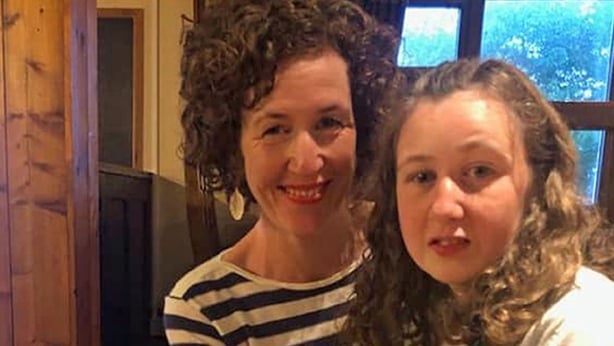Meabh Quoirin, the mother of teenager Nóra Quoirin who died after going missing during a holiday in Malaysia four years ago, has said that they live with the trauma of her death every day.
Speaking on RTÉ's Brendan O'Connor programme, she described the "painful" personal material shown on a documentary that was aired on television in Malaysia this week and that she knew nothing about it until the day it was broadcast.
"It came as a real shock," she said, adding that it was very painful to watch.
"Shocking in a number of different ways. The quality of the programme is pretty bad, in that it was a narration of what the police had endeavoured to carry out at the time. It was really a story about them, for them, by them.
"No critical questions were asked, no investigative points were raised. So from that point of view it was very poor and frustrating."
The 15-year-old, who was born with a very rare genetic condition leading to cognitive difficulties, went missing in the jungle while on a family holiday in August 2019.
Nóra's parents believed she had been abducted, however Malaysian police went on to treat it as a missing person's case, as they found no evidence of foul play.
Her body was found ten days after she went missing.
Ms Quoirin said they were quite taken aback when the documentary showed footage of the family being filmed repeatedly without knowing it.
"They showed a lot of personal material," she said, including of Nóra's funeral in Belfast.
"Perhaps the most shocking and painful of all was that they actually showed pictures of Nora's body when they found her.
"Blurred to an extent, but I can't really put into words the pain and anxiety that floods your body when you see a picture of your little girl like that on national television."

She said the documentary focused on some "erroneous" details as she remembered how they had to "push up" against what they had not done at the time in the search for Nóra.
"They really couldn't grasp who Nóra was and that created so many mistakes at the time," Ms Quoirin told the programme.
She said the documentary itself focused on the wrong things.
"They kept for instance coming back to forensics, which at the time we had to insist repeatedly on doing ... Within that they kept showing pictures of a speck of blood they found in our bathroom which turned out to be belonged to my other daughter. So it bore no relevance to what actually happened.
"It is quite striking they would show that four times in fact in the documentary, but not focus on the finger prints or really important physical evidence that they were able to gather," Ms Quoirin said.
She said sets of fingerprints from the window were taken, which they found open the morning of Nóra's disappearance.
We need your consent to load this rte-player contentWe use rte-player to manage extra content that can set cookies on your device and collect data about your activity. Please review their details and accept them to load the content.Manage Preferences
Ms Quoirin said that keeping Nóra's memory alive and what she brought to them was "super important", adding that the documentary heightens their anxiety "in that space".
"Four years on, I think it is more about being there to honour the truth and to share the love we had with Nóra," she said.
"It was such a privilege to have her as our daughter and that is what we try to focus on every day."
She said they have a strong sense of what they believe happened to Nóra.
"We had to fight quite hard to secure an inquest initially and that first inquest led to a verdict of misadventure ... We fought that and secured an appeal and the judge that was appointed pretty much articulated it quite well for us at the time, that it was highly improbable that Nóra wandered off into the jungle in treacherous terrain.
"It is virtually impossible to exit the resort at night. It would have required so many things for her to traverse the jungle on her own," she said.
Ms Quoirin said they can never conclude that.
"Our view and has been from almost the moment she disappeared that she was abducted," she told the programme.







